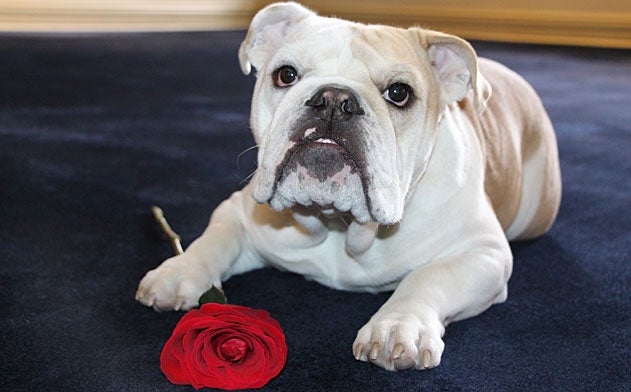Title: Men: Married? Quit Worrying About Valentine’s Day
A new study by the Georgetown Institute for Consumer Research says the romantic aspect of Valentine’s Day appeals to unmarried women in committed relationships but not to married or single women.

If you’re a married man, you might want to stop worrying so much about Valentine’s Day. But be careful if you’re unmarried in a committed relationship.
So says a new study by the Georgetown Institute for Consumer Research (GICR).
Researchers at the institute, based at the university’s McDonough School of Business, say the romantic aspect of the day appeals to unmarried women in committed relationships but not to single or married women.
Romance: Less Affordable Luxury?
“There are many possibilities, but one of the most appealing to us is that times have been tough of late,” says GICR director and lead study author Kurt Carlson, when asked about these findings. “People are working longer hours for the same or less pay than they did 10 or even five years ago. When times are tough, romance seems to be a luxury that just doesn’t measure up against the necessities of life.”
Since Valentine’s Day is typically a male-driven spending day, he says, it might be that “the crush of necessity” doesn’t fall equally on the two sexes.
“Men see Valentine’s Day as the main day they engage in romance,” says Carlson, also an associate professor of marketing at the McDonough School. “Women believe in romance year round, and maybe don’t feel the need for an extra day of it when times are tough. They might just simply prefer a new juicer to replace the old one.”
Gossip: Men vs. Women
The institute’s 2014 Valentine’s Day Survey, which Carlson produced with GICR research director Ishani Banerji and research associate Sam Skowronek, included nearly 900 consumers whose average age was 35.
Men in any type of relationship like the romance of Valentine’s Day, the study shows. But those not in relationships, men or women, dislike the romance of the day.
“We think this is because those who are not in relationships either don’t see the point or they are jealous of those in relationships,” Carlson says. “It is basically sour grapes applied to Valentine’s Day. If you can’t partake in the romance of the day then you don’t want the romance of the day.”
Valentines in the Workplace
Was the professor surprised by the study result that more men than women believe Valentine’s Day should be celebrated in the workplace?
It is basically sour grapes applied to Valentine’s Day. If you can’t partake in the romance of the day then you don’t want the romance of the day.”
—Kurt Carlson, GICR director on the results of the Valentine’s Day study
“On the one hand, yes, I was surprised, because the stereotype is that men are just generally less interested in celebrating Valentine’s Day than women,” he said. “On the other hand, no because the workplace has not always been fair to women.”
“Sexual harassment is still far more common than it should be, and even in settings where it is mostly absent, the ghosts of sexual harassment still walk the halls,” Carlson adds. “It is possible that women understand this better than men do and so understand the slippery slope of any activity in the workplace that could encourage sexual harassment.”
Economic Woes
The report also showed that 85 percent of people planned to spend the same or less money than they did last year.
About 59 percent of people in committed relationships said their change in spending was due to their financial situations.
“The economy as a macroeconomic entity has stabilized, but most people have less spending power now than they did ten years ago,” Carlson says. “In short, the economy is better off in terms of its stability, but people are not better off in terms of purchasing power.”
Universal Culture
Georgetown and KPMG LLP, the audit, tax, and advisory firm, launched the institute a little over a year ago with the mission of being the “go-to source for research about consumers,” Carlson says.
“While much of our work focuses on the testing theories of consumer behavior and using experiments to determine the causal drivers of consumer behavior, we also have a soft spot for consumer intentions that relate to universal cultural events,” he explains.
The institute’s first cultural event study was its 2013 Thanksgiving Black Friday Survey.